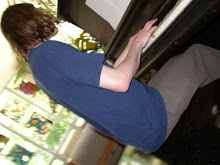Coming in at nearly 300 pages and starting with Breton's intentionally abrasive Dada poetry, this might not be the best place to start reading Breton. (Mary Ann Caws' book might be a better introduction.) However, if the size is uninviting for an unfamiliar reader, it is the opposite for a reader who is already interested in Breton's work.
The poems and sequences are here in their entirity, a rarity in the world of published translations, where shortened sequences and fragments of books are usually preferred.
The trajectory of Breton's writing and the range of Breton's writing might be discussed in a full review of this book, but in these few short notes, I must be selective.
What made me sit down and write about this book was my experience rereading the sequence The Air of the Water. This sequence of fourteen untitled poems startled me with their vitality:
I dream I see you endlessly superimposed upon yourself
You're sitting on the high coral stool
In front of your mirror always in its first quarter
Two fingers on the water wing of your comb
And at the same time
You're returning from a journey you're lingering the last one left in the grotto
Streaming with lightning
You don't recognize me
For all the poets interested in film techniques like montage, Breton's subtle understanding of how film techniques can be applied to poetry remains without peer. In this selection, for example, he uses the simultaneity of superimposition to make montage coexistant with narrative and then contrasts the multiplicity of superimposition with the singularity of the speaker's voice.
These poems as exciting as the current poetry of David Shapiro and John Yau, and a reader could gain a lot reading the three poets side by side. With this book in stores and a reprint of Mary Ann Caws' and Jean-Pierre Cauvin's Poems of Andre Breton in circulation, hopefully Breton's poetry (as opposed to his pronouncements, essays, and novels) will garner more attention.
Now if only someone could convince David Antin to collect his translations of Breton...
